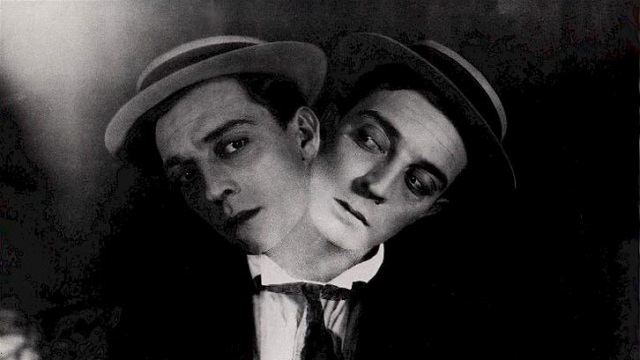The Face of OWS: Is Alan Moore the Storyteller of Our Time?

As NYC police attempt to clear Zuccotti Park of the Occupy Wall Street protesters, it seems appropriate to reconsider who OWS is and what they want. To me, their goals are as diffuse and omnipresent as the dysfunctional institutions they want changed. Who they are—the 99% facing off with the economically elite 1%–may be just as elusive. When the protesters looked for a face for their movement, they found an odd one in Guy Fawkes. Fawkes’ failed Gunpowder Rebellion of 1605 made him the Timothy McVeigh of his time—a violent note out of tune with OWS’ peaceful protests. When the protesters donned Guy Fawkes masks (shown above), however, they weren’t thinking of the “real” Fawkes. Instead, they were thinking of a faux Fawkes—the Fawkes of Alan Moore’s graphic novel (and, later, film) V for Vendetta. If the social movement of our time turns to a writer for an identity, does that make Alan Moore the storyteller of our time?
Gary Spencer Millidge’s Alan Moore: Storyteller tries to peel away the layers of the enigmatic onion that is Alan Moore, with the man’s cooperation, no less. Millidge’s book ultimately leaves you with more questions, but not because he fails to give any answers. Moore’s omnivorous imagination devours so many media that any attempt to pin him down on paper will always leave you asking for more Moore—a hydra sprouting more heads to scratch just as you think you’ve lopped off the last one. In telling the story of this storyteller, Millidge helps give a key to the subversive influence of Moore rising to the surface in OWS.
“Art is, like magic, the science of manipulating symbols, words, or images to achieve changes in consciousness,” Millidge quotes Moore saying. That magic, Moore concludes, “is why I believe that an artist or writer is the closest thing in the contemporary world to a shaman.” Millidge rides the shaman metaphor almost shamelessly, but to great effect. “Unlike the demagogues who exploit us,” Millidge argues, “the shamans feed our imaginations and confer dignity on our dreams.” Clearly, Moore has fed the collective OWS imagination and conferred dignity on their dream of achieving the multiple forms of equality they have been denied. Through the alchemy of art, Moore the shaman transformed Fawkes the terrorist into Fawkes the symbolic rebel and gave OWS a talisman for our time.
Millidge meticulously follows the development of Moore from “embryonic genius” growing up on imported American superhero comics and the Beats to the fully grown, but still growing, genius of today. “Moore is a committed anarchist,” Millidge demonstrates, “believing anarchy to be the point where a person takes control of their own life.” From Moore’s expulsion from school in 1971 for dealing LSD to his work forImage as “childish revenge” against Marvel and DC for their attempts to repress and outright steal from him, anarchy reigns in Moore’s life for good and ill but always as the truest expression of his ecstatic and excuseless existence.
Reading Alan Moore: Storyteller can be a trippy experience, from the artwork of the man himself and that inspired by his words to the ideas and words of Moore as captured by Millidge, who comes off as a true acolyte, but an honest one. Seeing the massive and intricately detailed storyline chart for Big Numbers, which is captioned as “the Turin Shroud of comics,” you fully appreciate the obsessive storytelling drive of Moore. All the classics are here, as well as the lesser known gems. Reading Moore describe his rendering of Swamp Thing as “Hamlet covered in snot” or Promethea as “a new kind of occult comic, one that was more psychedelic, that was more sophisticated, more experimental, more ecstatic, and exuberant,” you feel as if you’re eves-dropping fireside at the feet of the magus. For all those wanting to get closer to Moore without violating his cherished privacy, Millidge’s book is the perfect solution.
It’s ironic that the movie version of V for Vendetta that inspired so many of the OWS people to adopt the main character’s spirit and “face” is not embraced by Moore himself. Moore feels that any film adaptation of his graphic novels must fail by definition—if it was meant to work as a movie, he would have made it a movie in the first place. Moore famously refuses to have his name attached to any film version and asks that his share of the profits be split among his collaborators. What irks Moore the most is what he sees as the waste of such movies. “You’re talking hundreds of millions of dollars to which it recouped next to nothing,” Millidge quotes Moore lamenting over the film version of Watchmen. “And this in a world that is falling to bits.” Moore’s personal credo of anarchy likely prevents him from making a formal statement in support of the worldwide OWS movement, but the attitude of that statement comes close to a blessing of their mission. As OWS slips on a Moore-inspired mask to give their movement a face, Gary Spencer Millidge’s Alan Moore: Storyteller pulls away the mask of reclusiveness Moore has slipped on for the past few years as a way to maintain his sanity in this insane world. If an age is measured by the power of its stories and its storytellers, than Alan Moore gives us all hope for a better tomorrow.
[Many thanks to Rizzoli for providing me with a review copy of Gary Spencer Millidge’s Alan Moore: Storyteller.]





